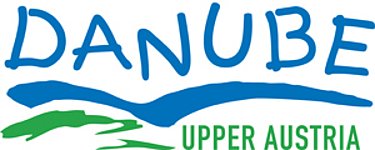R1.10 Cult Route around Linz
4040 Linz

"Following the Fascination of the Linz Basin"
Recommended season:
- March
- April
- May
- June
- July
- August
- September
- October
- Refreshment stops available
- Cultural/historical value
Enjoyable discovery cycling route around the Linz Basin: Pristine Danube floodplains, pass cycling through the Mühlbach valley, magnificent Alpine views, splendid quadrilateral farms in the Traun-Enns-Riedelland, river cycling on the mythic Danube, the Linz cultural capital skyline, the breakthrough valley Linz Gate ... Insider tip: Shorten the route with the Donaubus long ferry from Linz to Ottensheim.
Highlights:
- Wilhering Abbey (Abbey church a Rococo jewel, park)
- Baroque jewel St. Florian Abbey (Bruckner organ, tomb of St. Florian ...)
- Cultural capital Linz, UNESCO City of Media Arts
- Historic Danube cable ferry Ottensheim (in operation since 1871)
- Donaubus long ferry Linz-Ottensheim
A grand start is the magnificent Wilhering Abbey. The abbey church is one of the most beautiful Rococo churches in the German-speaking area and simply amazes! The impressive monastery complex is located on a floodplain terrace of the Danube at the transition from the extensive Eferding Basin into the Danube narrow valley of the Linz Gate. A cycle path leads through monastery fields to the Wilhering ferry landing. Opposite, the venerable Danube market Ottensheim with its stately castle greets you. You almost meditatively warm up cycling through shady Danube floodplain forests with birdsong on the Danube cycle path – a delicacy! Hidden views of a (renaturation) side arm of the mythic river recall the time when dense floodplain landscape, crisscrossed by meanders of numerous Danube arms, dominated the Eferding Basin. Quiet country roads later lead through fertile plains to the edge of the Eferding Basin. After crossing Linz street, enjoyable pass cycling surprises: a magnificent 6.2 km long ascent through the hidden Mühlbach valley up to the transition to the Linz Basin! Gently ascending, you cycle – mostly on the (usually moderately trafficked) main road – through rural cultural landscape, past neat settlements and small woods. In the idyllic village of Dörnbach, you branch off and climb the last, somewhat steeper elevation meters through the settlement area to the "pass" transition to the Linz Basin (360 m). Congratulations, you are at the highest point of the route! The Linz Basin, with an impressive area of 100 km², lies at your feet. Now begins the hilly descent – mostly through urban settlement areas, partly through rural cultural landscape – toward the Traun River. Along the way, some magnificent long-distance views over the Linz Basin to the Alps open up. And the market square of Leonding invites for a short rest. Upon reaching the lonely Traun floodplains, you first follow the flood dike, then the Kleinmünchner canal on the cycle path. Crossing the Traun bridge, you reach Ebelsberg. Today a district of Linz, Ebelsberg entered world history during Napoleon’s times through this strategically important Traun crossing. Here begins the ride through one of Upper Austria's most beautiful rural cultural landscapes: gentle hill waves, fertile fields, traditional scattered orchards, the largest quadrilateral farms of Upper Austria ... the Traun-Enns-Riedelland! Quiet country roads meander rhythmically with the landscape. Gently ascending to Wambach, a short, steep hill ridge then demands a sweat tribute. The long enjoyable descent to Rohrbach brings a smile afterwards. At the estate-like Jahreszeitenhof (365 windows, 12 gates) in Gemering begins the last climb. Then a very steep(!) short descent and you stand before the impressive Baroque jewel St. Florian Abbey, a Danube highlight! It is one of the largest Baroque monasteries in Austria: the abbey basilica, the world-famous Bruckner organ, the tombs of St. Florian and the musical virtuoso Anton Bruckner ... Have fun discovering! One more short, very steep(!) descent and you cycle through the historic market town of St. Florian out into the Danube plain. Through rural cultural landscape, it goes on country roads or cycle paths into the extensive Danube floodplain and over the imposing Danube power plant Abwinden-Asten to the other bank. Now follows top-class river cycling: joyfully pedaling upstream on the riverside dike along the legendary towpath. The glistening water, the refreshing breeze, the humming tires ... thoughts begin to fly. Opposite, the legendary salt river Traun flows into the Danube. Once, the valuable salt of the Salzkammergut came to the Danube on it. The surreal industrial landscape around the Steyregger bridge fascinates. And near the Linz sports boat harbor, the Linz Riviera surprises – a small sandy beach before a quirky industrial backdrop!
From the Plesching swimming lake on, the Danube shore becomes a popular local recreation area for Linz. Shortly thereafter, numerous architectures tell about the successful transformation of the Linz industrial site into a cultural capital: Brucknerhaus, Lentos Art Museum, Ars Electronica Center ... Linz is definitely worth a separate visit!
Tip: Connoisseurs use the Donaubus long ferry from Linz to Ottensheim and thus experience the deep breakthrough valley of the Linz Gate up close from the mythic river. Also, more time remains for lingering, as the route length reduces by about 10 km. In Ottensheim, the cable ferry to Wilhering is still necessary afterwards.
After Linz, the ride goes through the deep breakthrough valley of the Linz Gate. The wide Danube cycle path invites you to let the bike roll. Due to the landscape, it often follows the busy main road. Final highlight: the historic Danube market Ottensheim! Located at the end of the Eferding Basin, there has always been an important crossing here. The scenic marketplace tells of this long tradition as a trading hub. The crossing with the cable ferry, the first of which began operating in 1871, is a beautiful conclusion even for technically less interested landlubbers. The short return to Wilhering Abbey is already known.
Safety guidelines:The main part of this enjoyable discovery cycling route uses quiet, paved (side) roads and cycle paths. Only through the Mühlbach valley can – depending on the time of day – a bit more traffic occur over nearly 3.9 km. Three sections (430 m, 130 m, 220 m) run over well-ridable sandy paths. Basic gear-shifting skills are advantageous in the hilly Traun-Enns-Riedelland. In St. Florian, two short, steeper descents require special caution. Please observe the operating times of the Ottensheim cable bridge for the final crossing to Wilhering. If it is not in operation, you can alternatively switch riverbanks via the Ottensheim-Wilhering power plant. However, this will extend the route by about 8.5 km!
Tip: To make the route more attractive with a Danube boat trip and simultaneously shorten the cycling distance, the Donaubus long ferry from Linz to Ottensheim is recommended.
Signage:
To help you with orientation, the Danube cycling routes have been marked with their own cycle guidance system. This route follows the signage "R1.10 Cult Route around Linz".
Paths covering:
further information:
- Board possible










































Public Transit
How to get to the Danube Region Upper Austria?
The fastest way to the destination – by train, bus, car, ship, or plane.
- Spring
- Summer
- Autumn
Please get in touch for more information.
Lindengasse 9
4040 Linz
Phone +43 732 7277 - 800
Fax machine +43 732 7277 - 804
E-Mail info@donauregion.at
Web www.donauregion.at
Suggest changes
Please let us know how we can improve the quality of this object or if there is any incorrect information on this page (eg. opening hours, contact etc.).
Fields marked with an asterisk (*) are obligatory















